This article originally appeared on VICE UK.
London’s Soho: a place synonymous with indulgence, mischief, and style. Where money has been made, lost, and spent. Bodies have been bought, sold, and worshipped. Lives have been built and ruined. Soho is central London’s last village, where the spirit of the city is crammed into one square mile. Every type—from rockers, rudeboys and skinheads, to novelists, poets and painters—has frequented this Georgian grid, seeking the same thing: entertainment, conversation, and oblivion.
We all know London is changing: every area evolves and so do the people who populate it. I always believed Soho would be safe, but the neighborhood, so neatly defined by its borders—Shaftesbury Avenue, Charing Cross Road, Oxford, and Regent Street—isn't immune to the upheavals of the Crossrail development or the demands for boutique hotels and luxury living. The trucks, scaffolding, and roadworks that jam each corner will soon leave an unfamiliar place, replacing Georgian edifices with cheap brickwork and plastic shop fronts. With the physical change comes a human one, too: Going are the original residents, local pubs, late licenses, and nunneries; in comes the law and sterile streets—a pedestrian, homogenized British high street.
This area has been documented through photography for years, but it will never look or feel as different as it is about to. I’ve been fascinated by the neighborhood since my first job on Old Compton Street at the age of 16, sweeping the floor at a barbers. It was important to me that this period in Soho’s life cycle be recorded, so last winter I started photographing the people who make the place feel timeless, and haven’t stopped.
I’m interested in someone with a story. I spend time watching people, then approach them to chat in the hope they won’t tell me to fuck off, which has happened. Other times, like with the lovely Soho Duchess, Dorothea Phillips, we arrange a day to shoot and spend hours drinking gin and tonics, and I get nostalgic for a time in which I wasn’t even born. It is a joy to spend a full day drinking and socializing and learning in order to get the portrait, as opposed to just a snap. I shoot each character in a place dear to them—where they are part of the fabric that makes the place what it is—and I hope my portraits help preserve some of the neighborhood’s original DNA.
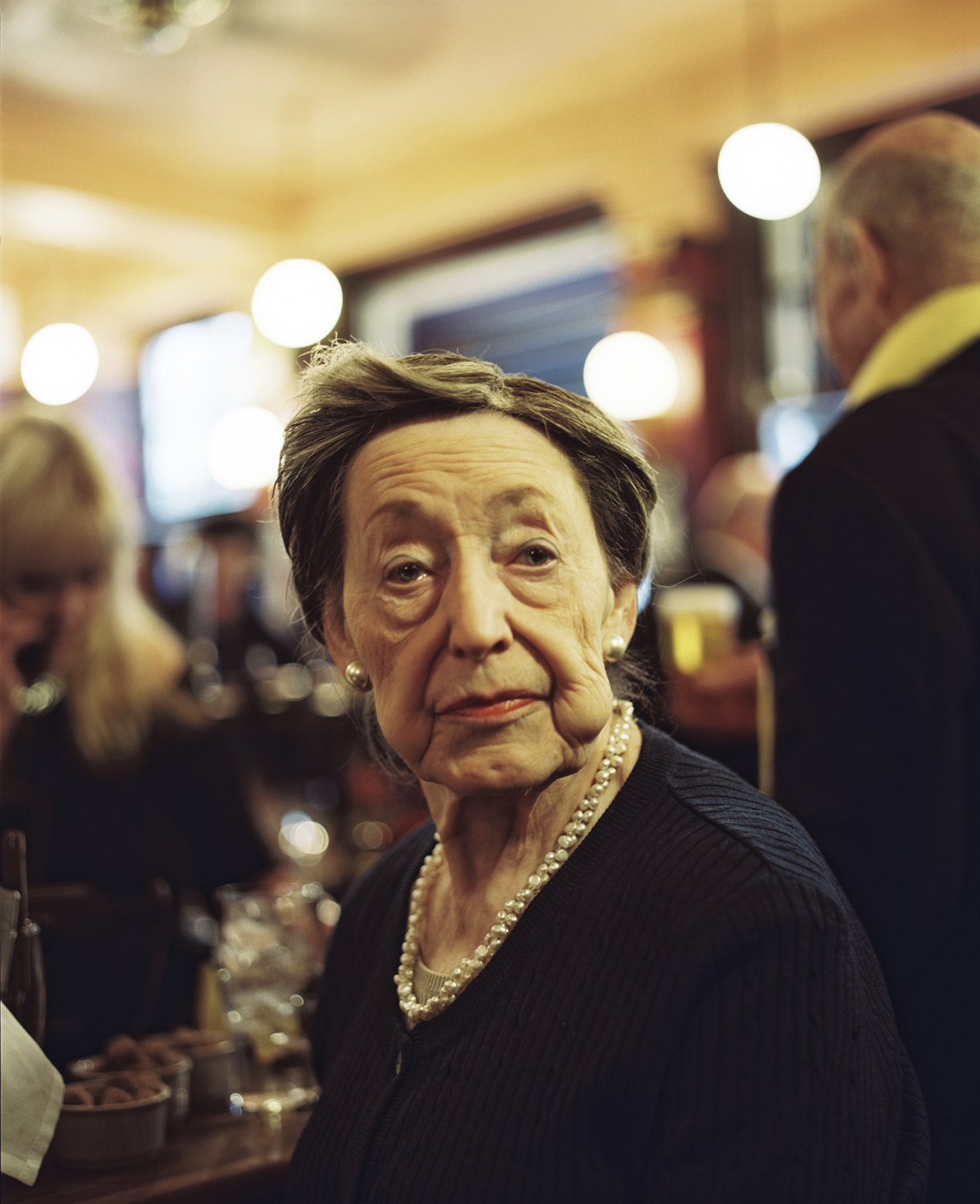
Dorothea "Dotty" Phillips, the only patron in the French House who is served her drinks in a pint glass. "My father was in the bath one day and the bomb fell. He ended up with no house around him being held up by three pipes in the bathtub. The headline the next day was 'By the Hand of God.'"
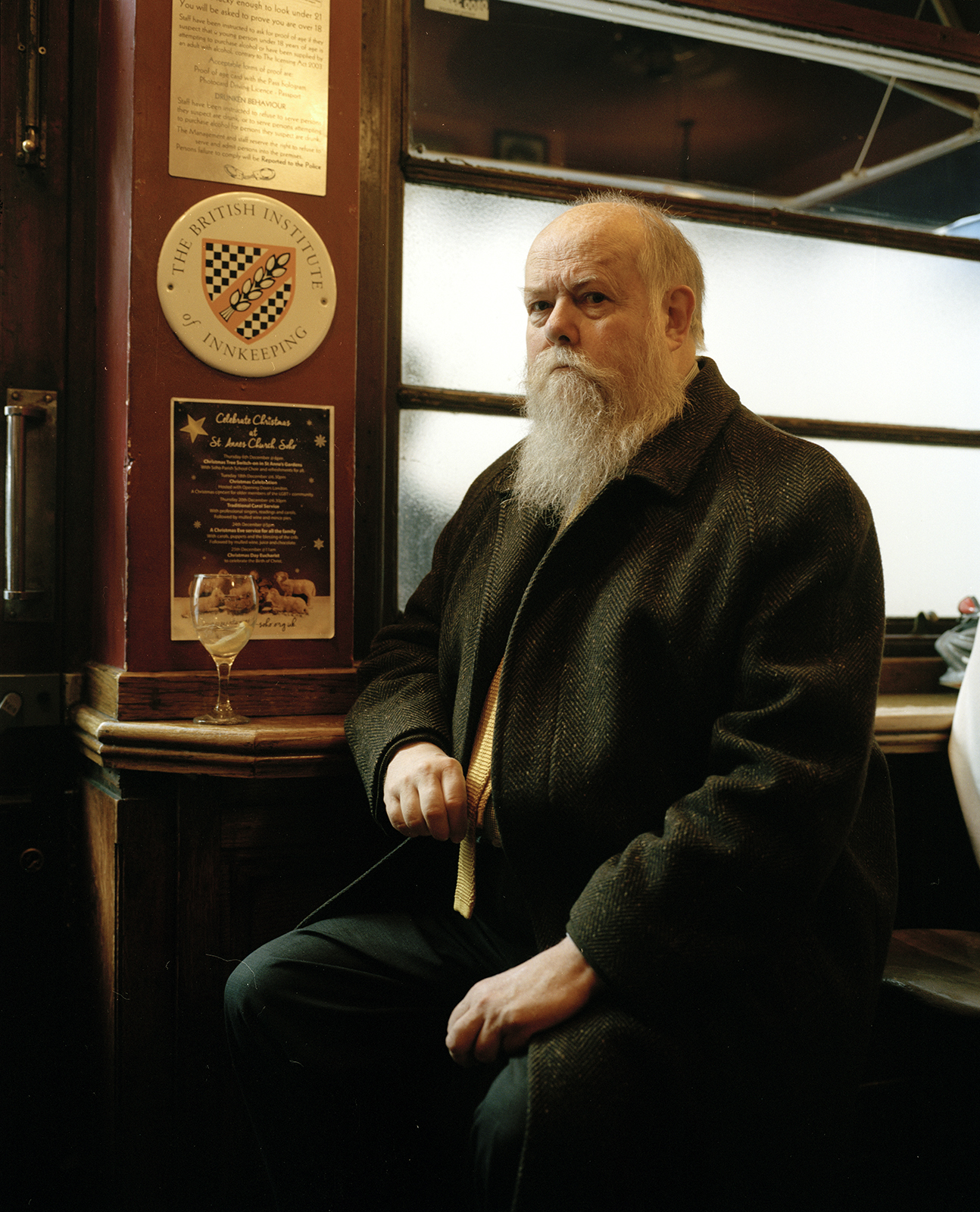
Christopher Howse, author of 'Soho in the Eighties,' which recounts the lost Soho he once knew as home—its cellar cafes and butcher shops, its villains and its generosity. "The cast was so familiar and went back such a long way. The peculiarity of people was accentuated so it was all very funny indeed. Of course, with that tragic undertone too, everything ended in death, failure, and sickness. For me, Soho was a love affair in the 80s—a dangerous liaison. It was no great achievement to survive it, for that Soho fell away from me and disintegrated."
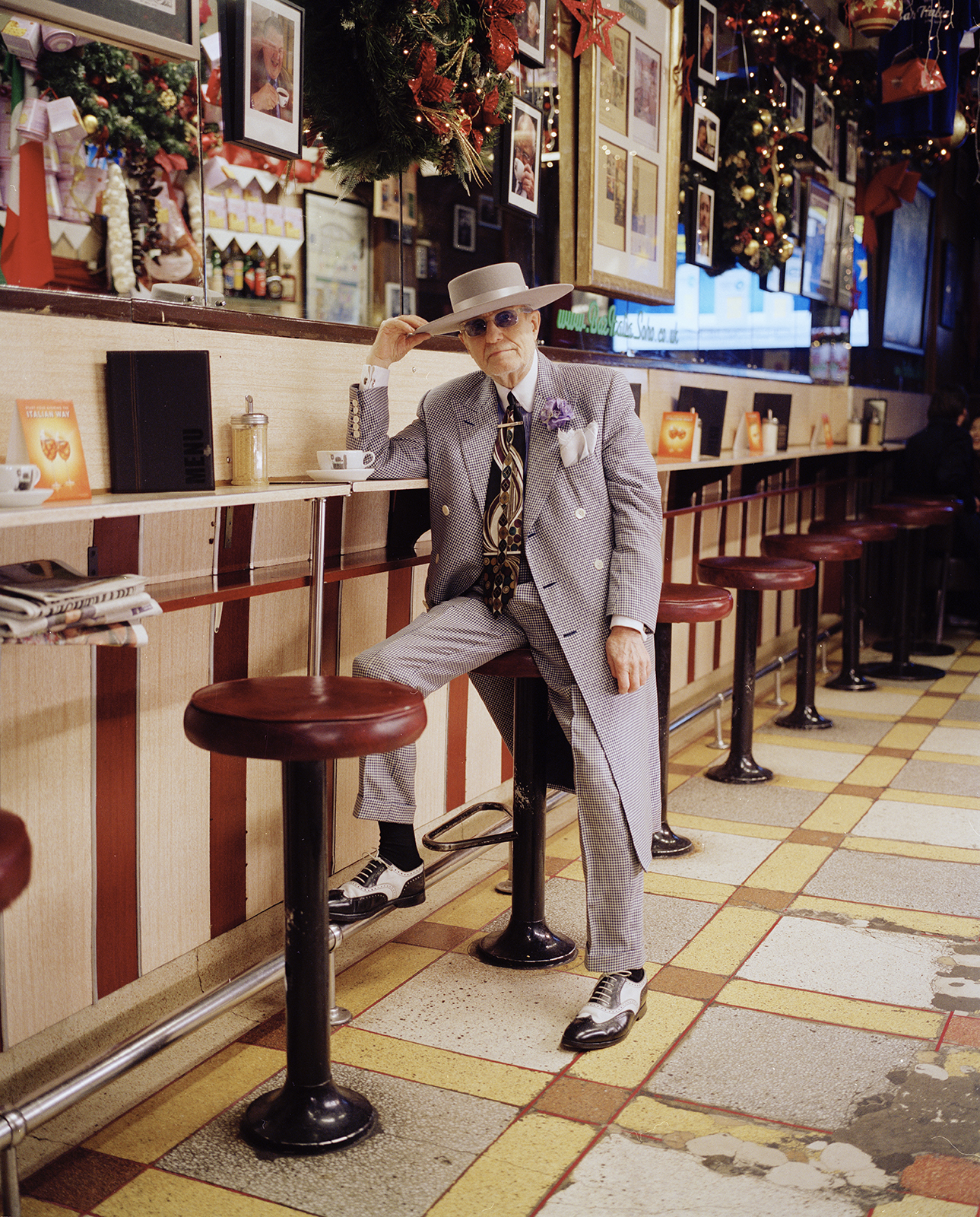
George Skeggs, arguably the best dressed man in Soho. It’s not hard to spot George, as he spends much of his day being propositioned for a picture. He retains the same energy and makes the same effort for Soho he always has. “I was what you would have called an absolute beginner. I arrived in Soho in 1957. I was 14 when I came up here… Came up for a particular reason: to try and get discovered in a skiffle band."
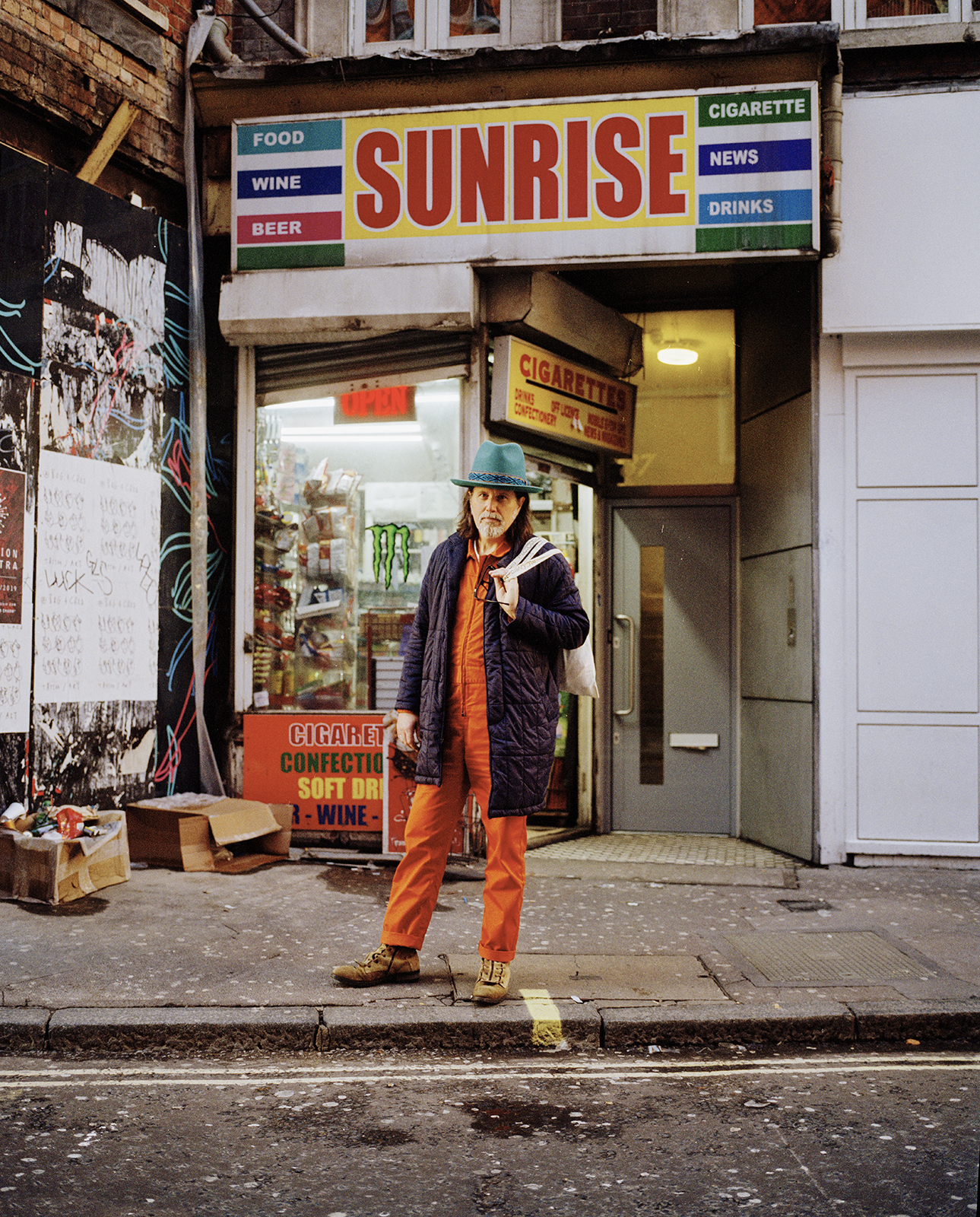
James Scroggs' business sits on the same street as the Sunrise corner store, a shop that has held its own for a long time, unmoved by the changes in Soho, but recently shuttered. "Soho is a swollen orange—arguably a little unforgiving and tough from the outside (even for fruit-lovers), but get inside and you’ll be awash with sweet flesh, juice, and the occasional seed. It’s a messy pleasure."
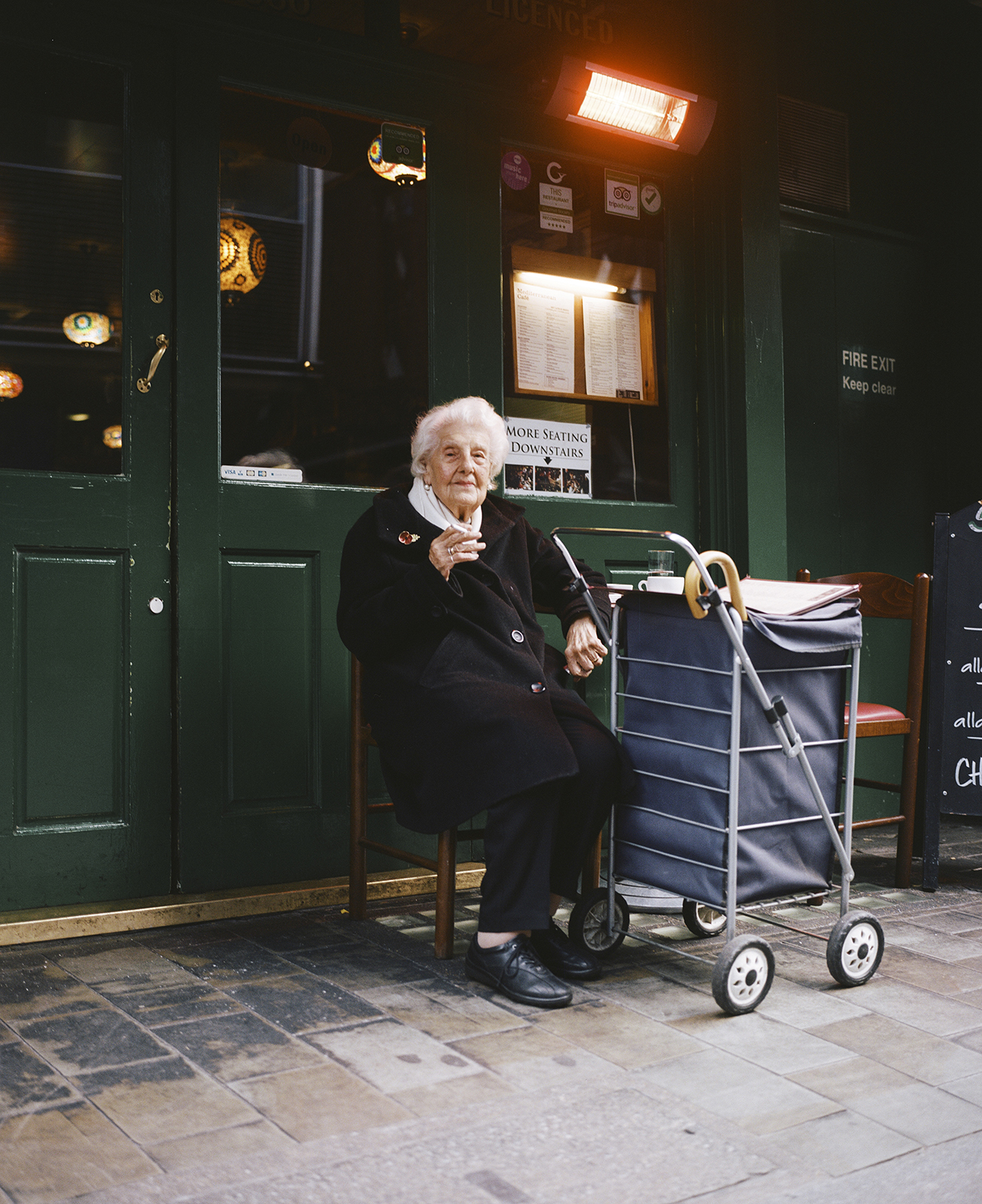
Violet, born on Berwick Street Market, can always be found in the afternoon sitting outside the Mediterranean cafe with her cart, enjoying a cigarette. A truly lovely woman who knows everyone. “Why can’t they build apartments for ordinary people? It won’t be the same here. Soho will be finished. There used to be hardware shops, butchers, fish and chips… Little dairies—pint of milk, penny in the slot."
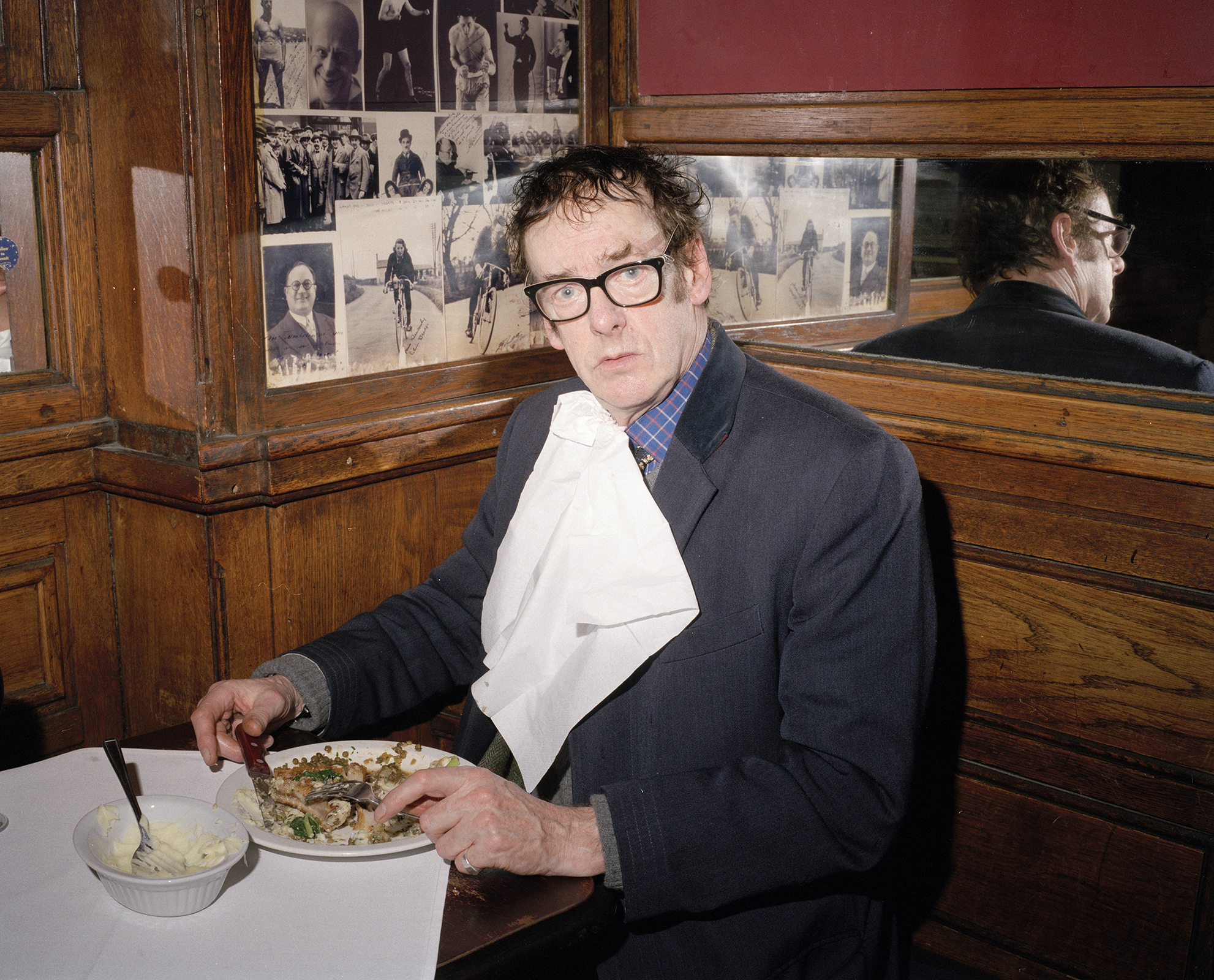
Ed Tudor-Pole, the 'Crystal Maze' presenter, actor, Georgian daydreamer, lead singer of 80s punk band Tenpole Tudor, and once the fastest motorcycle rider in London. Seen here at the French House enjoying skate fish, beurre noisette, and capers with a bowl of aligot. "Soho was never what it was."
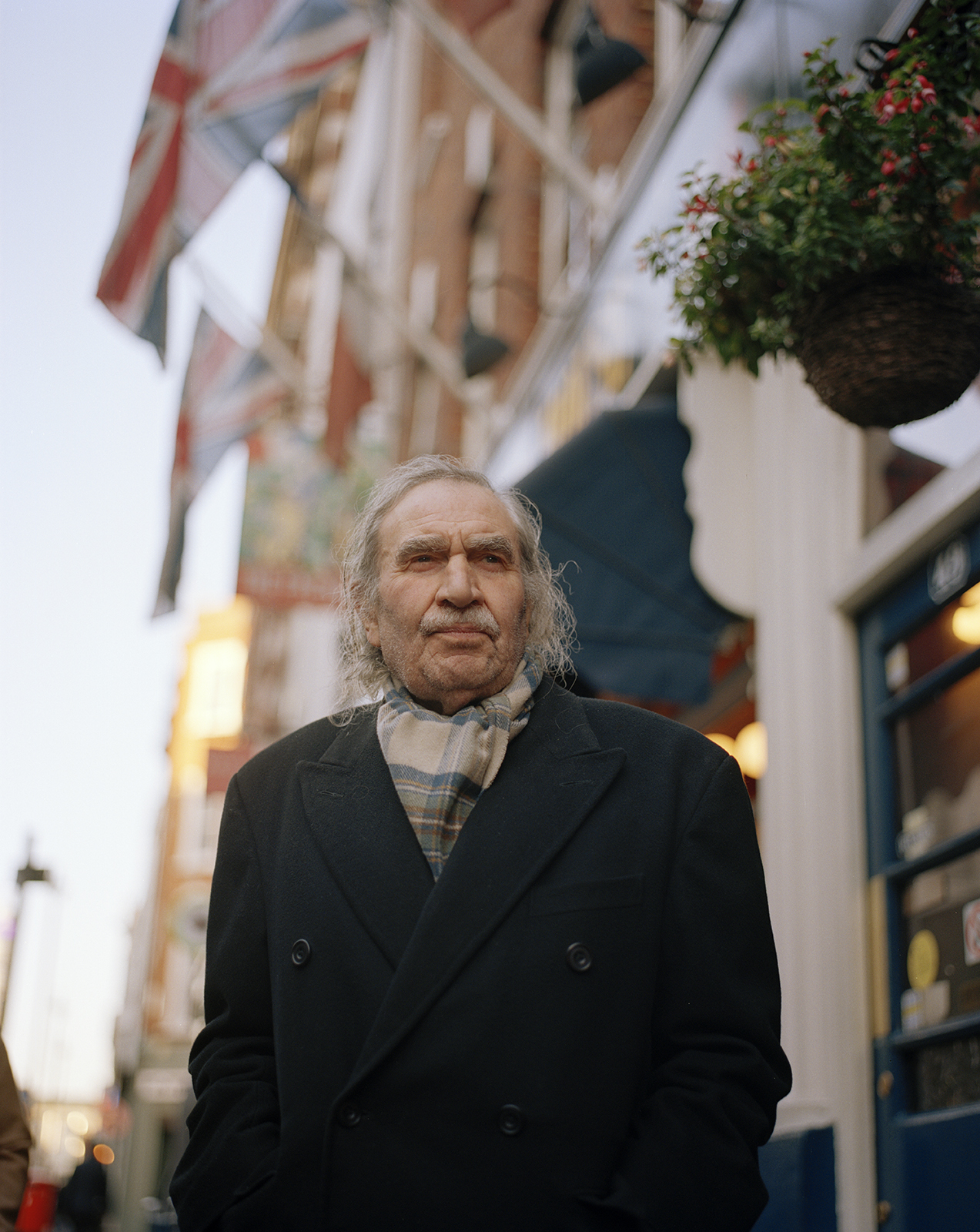
Bernie is an immediately recognizable figure—long mac flowing, scarf pulled on tight, usually enjoying a bottled Guinness at an end of the French House. He has a voice only heard on Karel Reisz documentaries. “I came into the Soho around 1964. I worked in the striptease clubs—I did the electrical for them. Ooooh, those were the days, pal, I tell ya! Everything around you was a moment!”
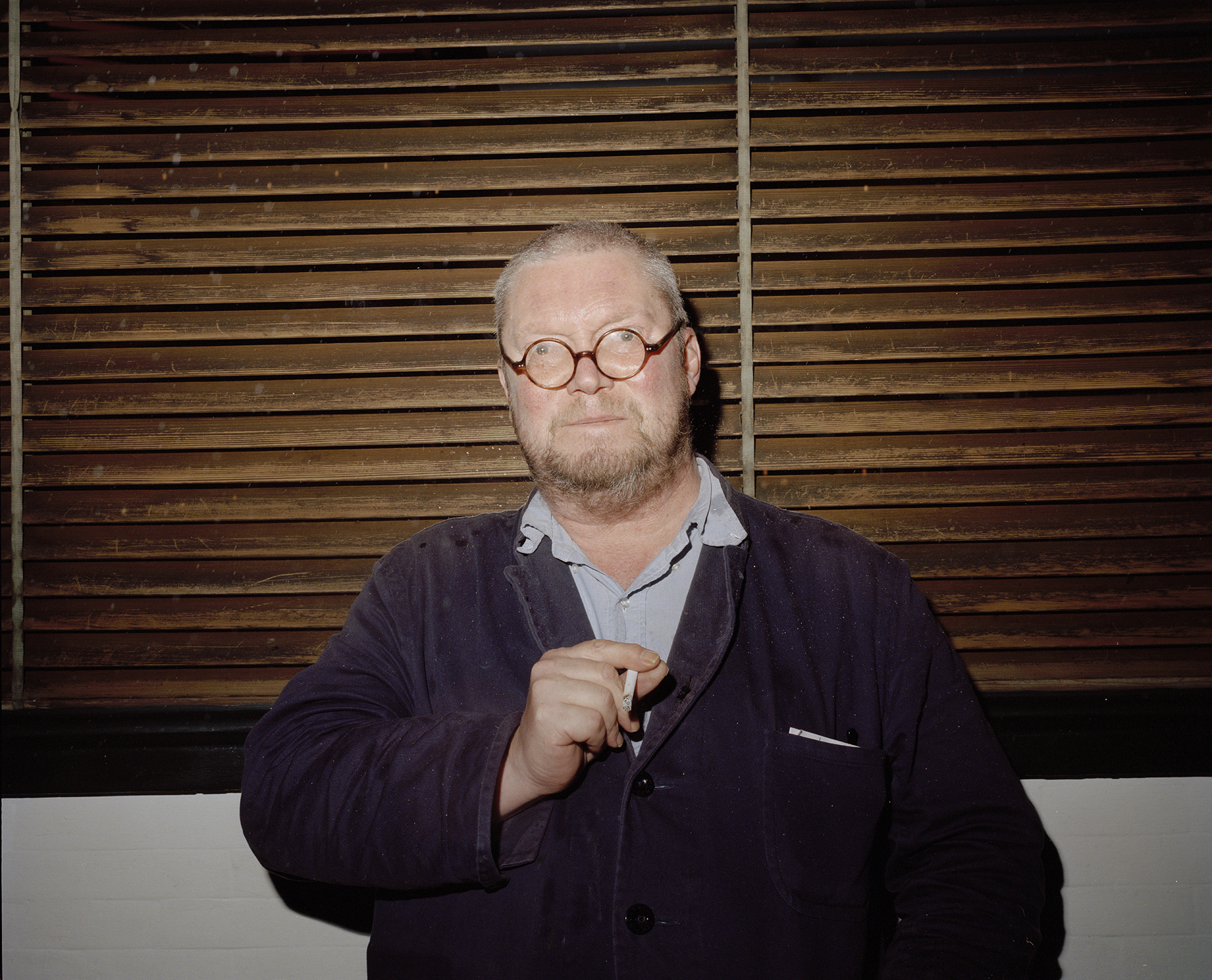
I always see Fergus Henderson, the chef and founder of the St. John restaurant, but for some reason, I felt nervous about approaching him. When I finally did, in the pouring rain, he offered me a cigarette after saying hello, then told me I was walking a well-trodden path. “Way-hay! Dean Street, 200 yards of trouble. Happy trouble.”
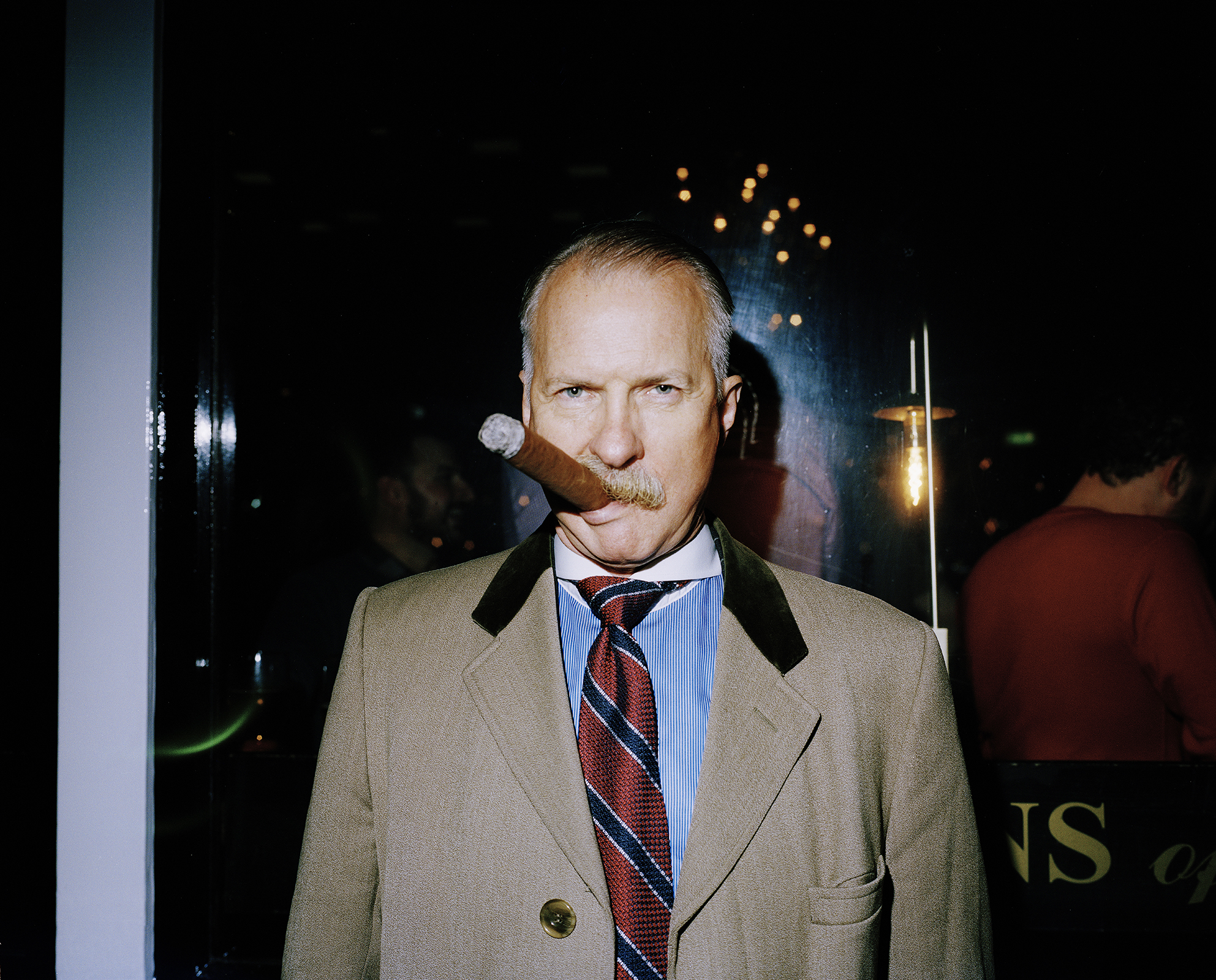
Tom was chomping a fat boy outside Comptons on a Monday night without a whiff of pretension. As casual as you like. “Samuel Johnson said, ‘When a man is tired of London, he is tired of life.’ But you will never tire of Soho.”
Sign up for our newsletter to get the best of VICE delivered to your inbox daily.
from VICE https://ift.tt/2HLIVHJ
via
cheap web hosting









No comments:
Post a Comment